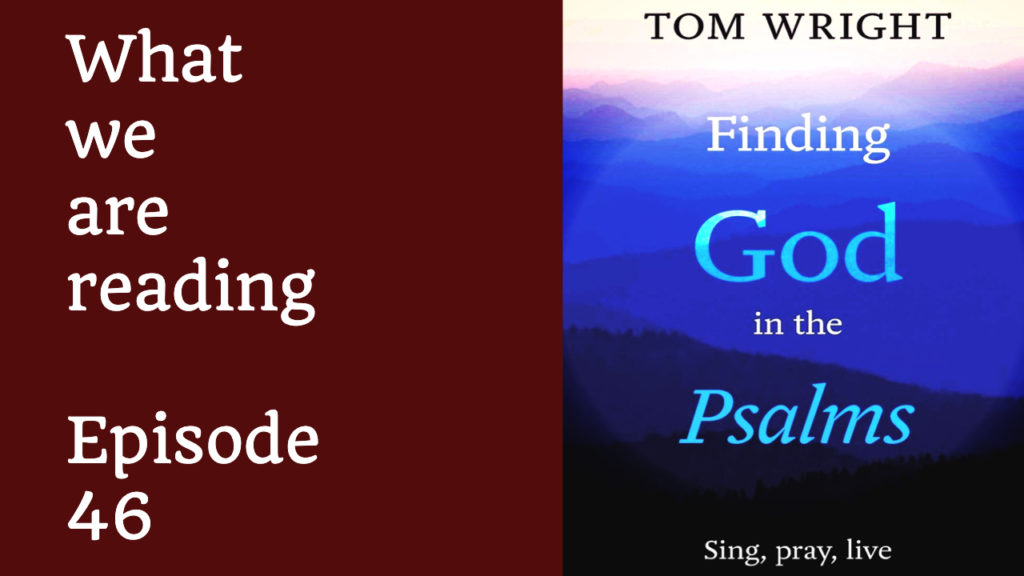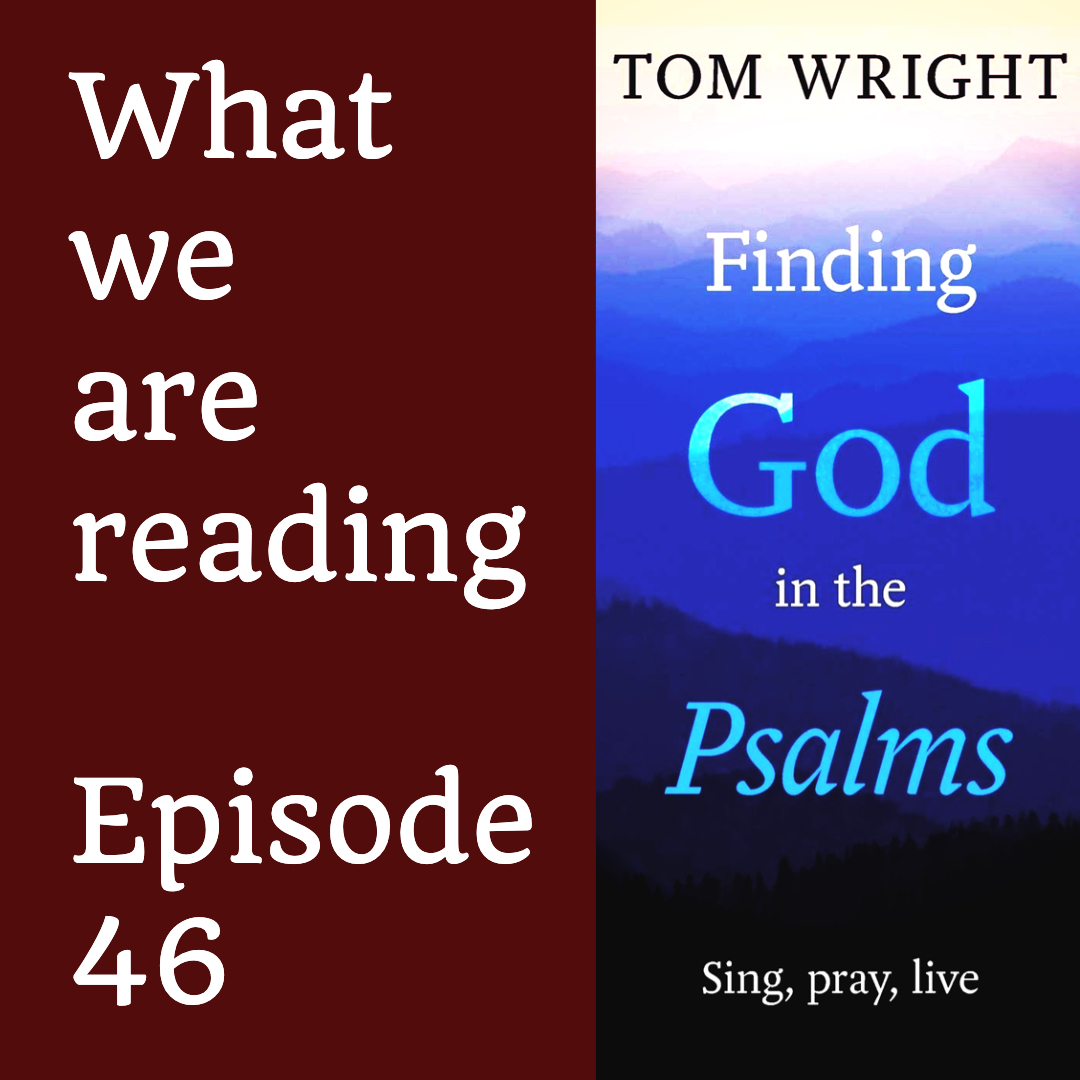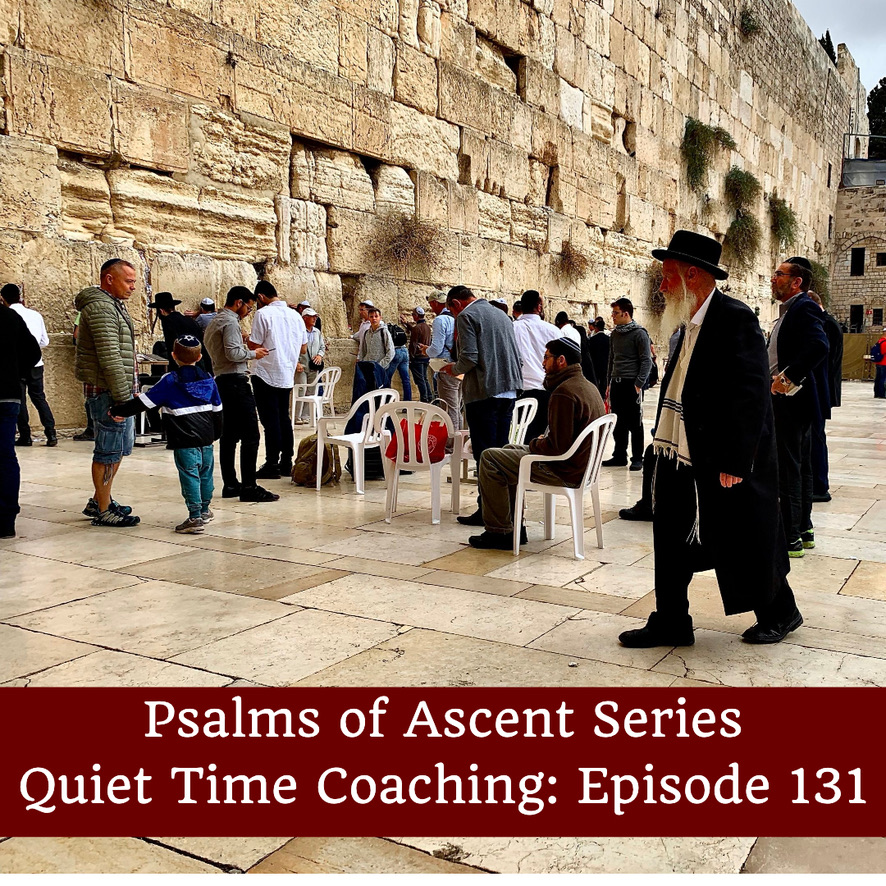What we are reading, episode 46

This week I bring you some thoughts from a wonderful book on the Psalms.

My motivation in reading the book
- The older I get the more the Psalms are important to me. I connect with some of the themes in ways I did not when I was younger. The varied experiences of a longer life intersect with topics the Psalms address.
- I picked up this book (kindle version) in the hopes that NT Wright would combine his scholarship with a pastoral heart. And in doing so expand my understanding of the Psalms, as well as my ability to connect them to my life, and the lives of people around me.
Basic Premise
- N. T. Wright feels that the church has not made the best use it could of the Psalms: “By all means write new songs. Each generation must do that. But to neglect the church’s original hymnbook is, to put it bluntly, crazy.” Wright, Tom. Finding God in the Psalms (p. 5). SPCK. Kindle Edition.
- Perhaps too often we try to short-cut our way from the world of the Psalmist to our own world. Maybe we impoverish the Psalms by only looking for those which address directly our current needs. Instead, perhaps the Psalms would reward a more diligent approach characterised by entering the world of the Psalmist before considering its application to our personal situation: “Actually, again and again it is we, muddled and puzzled and half-believing, who are the problem; and the question is more how we can find our way into their world, into the faith and hope that shine out in one psalm after another.”
Wright, Tom. Finding God in the Psalms (p. 6). SPCK. Kindle Edition. - Wright’s stated goal is… “I propose in this book that the regular praying and singing of the Psalms is transformative.” Wright, Tom. Finding God in the Psalms (pp. 6-7). SPCK. Kindle Edition.
- If the goal is transformation, we are in good company: “the Psalms were the hymnbook that Jesus and his first followers would have known by heart.” Wright, Tom. Finding God in the Psalms (p. 11). SPCK. Kindle Edition.
Methodology
- This is not a commentary on the Psalms. Don’t come to this book expecting to see a comprehensive and thorough treatment of all the Psalms. Instead, Wright divides the Psalms into themes as below:
- Pray and Live
- At the Threshold of God’s Time
- Where God Dwells
- All the Trees of the Forest Sing for Joy
- At Home in the Psalms
- Afterword: My Life with the Psalms
Some of the key ideas covered in the book
- Since the Psalms were the poetry and hymnbook of second temple Judaism, and that underpinning the times of Jesus and the early church, it is important to enter that worldview if we are ever to properly understand Jesus and his spirituality.
- Wright asks us to consider the way in which the Psalms help us to understand how time, space and matter were viewed at that time. “I am suggesting that the entire worldview that the Psalms are inculcating was to do with that intersection of our time, space and matter with God’s, which Christians believe happened uniquely and dramatically in Jesus.” Wright, Tom. Finding God in the Psalms (p. 31). SPCK. Kindle Edition.
- The Psalms remind us that there is a bigger picture behind the clutter of our daily view: “The Psalter forms the great epic poem of the creator and covenant God who will at the last visit and redeem his people and, with them, his whole creation.” Wright, Tom. Finding God in the Psalms (p. 33). SPCK. Kindle Edition.
- The Psalms help us to remember our role in redeeming creation (see Psalms 22, 51, 89): “Humans have sinned, but God will still work through them; Israel has sinned, but God will still use its people to bless the nations; monarchs have sinned grievously, but God still promises to bring the world into subjection under his anointed king.” Wright, Tom. Finding God in the Psalms (p. 63). SPCK. Kindle Edition.
- The Psalms focus on the Temple and Torah as representative of God’s presence with His people (see Psalms 2, 9, 42-43, 15, 24, 48). They remind us of what it means that we live a God-with-us life in the hear and now. Our discipleship is informed and inspired: “Here is the challenge for those who take the New Testament seriously: try singing those psalms Christologically, thinking of Jesus as their ultimate fulfillment. See how they sound, what they do, where they take you.” Wright, Tom. Finding God in the Psalms (p. 110). SPCK. Kindle Edition.
- The Psalms are very ‘physical’, rooted in mountains, trees, fields, sheep, oceans the stars and more (see Psalm 148). They remind us that God’s creation is good and that we do well to take the material aspect of God’s creativity seriously: “…what looks to the flattened-out imagination of late Western modernity like ‘lifeless’ matter is in fact a world throbbing with God-given life. That life is constantly praising its maker by being, particularly and peculiarly, what it is.”
Wright, Tom. Finding God in the Psalms (p. 120). SPCK. Kindle Edition.
Personal Reflection
- Wright reminded me that the Psalms are not just for personal comfort, but for spiritual transformation. They are designed to come alongside me, yes, but to change me. The point of praying the Psalms is to enter into a fuller understanding of God whilst in his presence such that his Spirit touches, speaks to, and revives my own. “Sing these songs, and they will renew you from head to toe, from heart to mind. Pray these poems, and they will sustain you on the long, hard but exhilarating road of Christian discipleship.” Wright, Tom. Finding God in the Psalms (p. 35). SPCK. Kindle Edition.
- Whenever I am teaching or recording anything on the Psalms, I go back to this book and look for relevant references in the scripture index. As I mentioned before, it’s not a commentary on the Psalms, but Tom Wright’s insights are valuable.
- The greater value in the book is the way in which the Jewish understanding of the Psalms helps to illuminate early Christian thinking about the nature of God and the purpose of the church. We miss something when we look only to the Epistle and the book of Acts for our understanding of the church. The Psalms were the hymnbook for the early church. It shaped its understanding of God, mission, how to live as an emissary of the kingdom, and what it was they were ushering in. In other words, where the church was going.
I recommend this book for anybody looking for a deeper understanding of the Psalms, and in particular for the connection between Jewish and early Christian thinking.
Please add your comments on this week’s topic. We learn best when we learn in community.
Do you have a question about teaching the Bible? Is it theological, technical, practical? Send me your questions or suggestions. Here’s the email: malcolm@malcolmcox.org.
If you’d like a copy of my free eBook on spiritual disciplines, “How God grows His people”, sign up at my website: http://www.malcolmcox.org.
Please pass the link on, subscribe, leave a review.
“Worship the LORD with gladness; come before him with joyful songs.” (Psalms 100:2 NIV11)
God bless, Malcolm
PS: You might also be interested in my book: “An elephant’s swimming pool”, a devotional look at the Gospel of John


